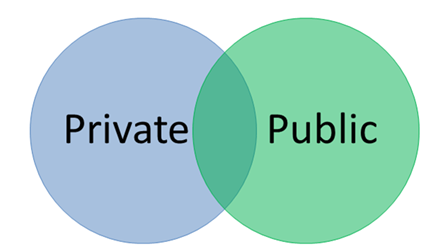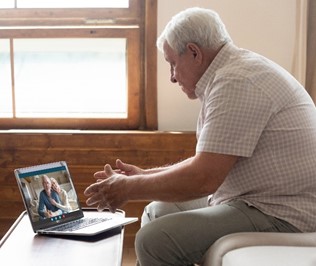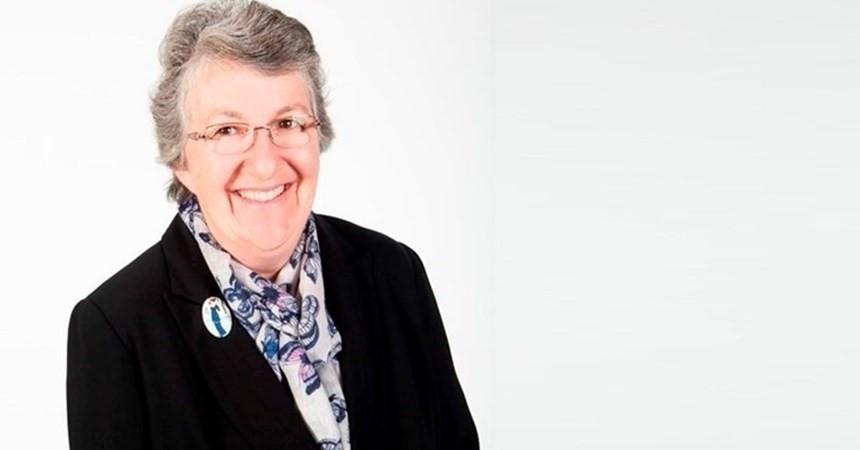This part of the training invites participants to consider their private pain, pressure or motivation which in turn may lead to intentional public action for the common good. You may recall that at the end of last week’s message I ask you to consider taking action from which hope may rise up. This seems to fit as part of that theme.
It is at the place of intersection, between the private and the public, that our creative, transformational, exploratory and imaginative ability and energy to act takes place.

The private sphere engages the space in which we find ourselves – family, friends and the self, while the public sphere is around our work, community engagement, sport, the weather and politics. The intersection is where we grow our private/public self for intentional (intensional) action. It is in this space that we share our stories and the action that comes from a place of tension can make a difference, particularly if it is with a collective. When we don’t make the connection between private and public, we are bound to interpret our problems as signs of personal failure.
 During the week, while participating in alliance training, the small group I facilitated were asked to share their present private pain. It will come as no surprise to you that the stories that were shared emerged from the isolation issues we are facing due to COVID – 19. The following words were used during this story-sharing – separation, isolation, need to be safe, contact, gathering as a community, family, human relationships, human well-being, human and environmental connection, struggling, safety, aging people, inequity, just, fair and equitable, reconnection, and complexities. A real need was expressed for the desire to connect with people in our families and communities.
During the week, while participating in alliance training, the small group I facilitated were asked to share their present private pain. It will come as no surprise to you that the stories that were shared emerged from the isolation issues we are facing due to COVID – 19. The following words were used during this story-sharing – separation, isolation, need to be safe, contact, gathering as a community, family, human relationships, human well-being, human and environmental connection, struggling, safety, aging people, inequity, just, fair and equitable, reconnection, and complexities. A real need was expressed for the desire to connect with people in our families and communities.
The Gospel story has the Canaanite woman, a woman with no status, expressing her private pain loudly, and shouting at Jesus. Not only does she cause his disciples a great deal of discomfort, but she then boldly and courageously challenges and questions Jesus.
I came across the following words, written by Rev Anne Hewitt, in the South Australian Council of Churches E-News - Relationships, Renewal and Reform on the Ecumenical Journey
The mother is unwelcomed, a Gentile, has a child with a serious illness, which has likely brought shame to the family. She faces a group of men and a revered charismatic preacher alone, during the day, putting herself at risk of being seen as a woman of ill repute. She humbles herself before Jesus. Yet, her actions make her intentions clear. She knows Jesus can, and will, heal her daughter. She will take the risk of danger, rebuke, shaming, humiliation, potential rejection and even accept the condemnatory ‘mantle’ of a dog. Her faith is so strong and her love for her daughter unwavering. She will risk all, for even a ‘crumb’ of assistance, because she believes.
Jesus explains that our intention, from out of the heart, is even greater than our religious practices, as they truly reveal who we really are. We express them through our attitude, with what we say and how we act. ‘Living faith’ is revealed through our being and doing.
You can see how the mother’s private pain moves her to action which is proactive, hope-filled and powerful. Imagine if we did this as a collective, if we listened to the private pressures that face us as a community and took public action.
While writing this message and listening to the private pressures which people shared, I was reminded of the meetings of church leaders which took place earlier this year, and which resulted in the Hello Hunter project. Once again, I invite you to go to the Hello Hunter website and to consider registering as a volunteer so as to connect with people who may be feeling isolated. I am disappointed that so few of our Catholic Church leaders have registered their parishes with the Hello Hunter project. It seems to me that people are crying out for connection in this time of isolation, and Hello Hunter is a simple and effective way of supporting the wider community - it is what Jesus would do.
 In this weekend’s Sun Herald’s Sunday Life, in the wellbeing section, I came across an article Hungry for Touch written by Evelyn Lewin. She writes about Helen, a 51-year-old single lady, living on her own in Melbourne, who brought herself a soft toy, conscious that she hadn’t hugged another person in more than one month. She was missing being touched by loved ones. In picking up the stuffed lion cub she felt soothed. The article goes on to say:
In this weekend’s Sun Herald’s Sunday Life, in the wellbeing section, I came across an article Hungry for Touch written by Evelyn Lewin. She writes about Helen, a 51-year-old single lady, living on her own in Melbourne, who brought herself a soft toy, conscious that she hadn’t hugged another person in more than one month. She was missing being touched by loved ones. In picking up the stuffed lion cub she felt soothed. The article goes on to say:
What Helen went through is known as “skin hunger” or “touch starvation”. It happens when a person experiences little or no touch from other living beings. This can lead to a yearning for such contact and can have negative effects on one’s mental health, says clinical psychologist Kirstin Bouse of Perth Psychology Collective. … “Touch is really important for brain development and ongoing mental health wellbeing.” ……Helen believes staying connected with others – via phone calls, texts and writing letters – can also ease the burden of loneliness, even though such measures can’t satisfy a need for touch.
By way of finishing this message, we are using Zoom as a way of trying to remain connected with our children and grandchildren who are living in Queensland. During last week’s family zoom catch-up, Rowan who is two, the youngest of our grandchildren cried inconsolably because he could not touch us. I can still hear him crying “Nana! Nana! Poppy! Poppy!” We have not seen them since the beginning of the year and yet he has this touch memory of us. If that is what it is like for a two-year-old, what must the struggle be like for many in our community?
Next week I will look at the private and public spheres in relationship to our Diocesan Synod processes as well as that of our Plenary Council. We can no longer carry on with our ‘business as usual’ when clearly something needs to change.
Till next week, enjoy the changing of the season.

